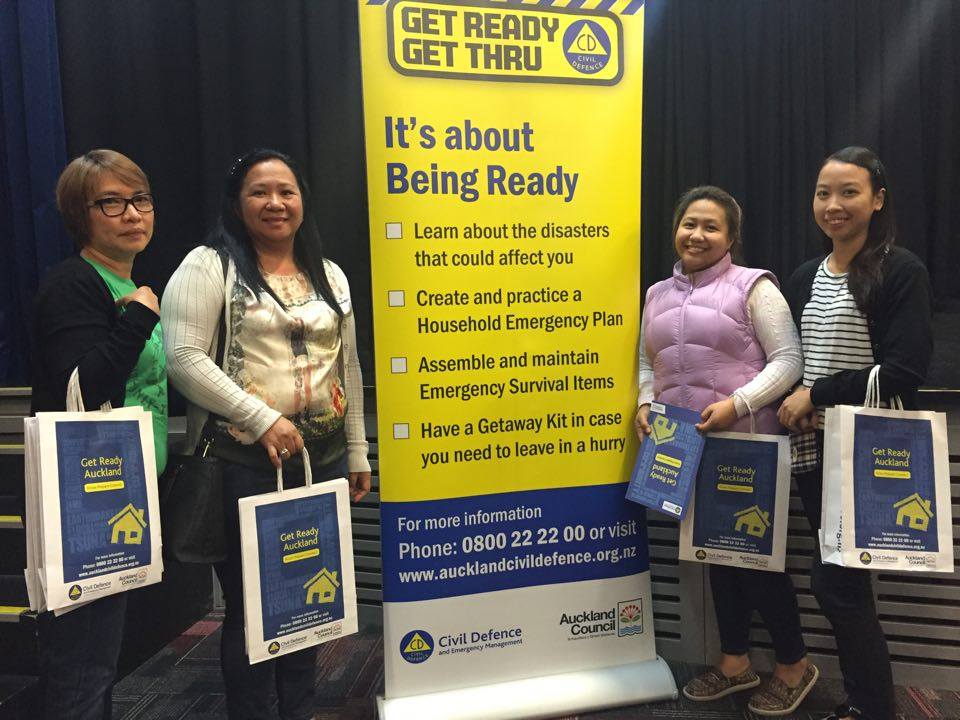Orewa elderly worried they won't get word of tsunami
• November 11, 2016

Crossley Court staff member, Elaine Redulla, tracks the evacuation route from the retirement home on a map of Orewa. Photo: Madison Reidy
Elderly Orewa residents are worried they will not receive adequate evacuation warning from Civil Defence if a tsunami strikes their coastal town.
The popular retirement area’s community of more than 7000 is at high risk if a natural disaster struck its three kilometre long beach, said a Civil Defence and Emergency Management (CDEM) senior advisor.
“This is all about preparation, how we can help you, how you can help yourselves and your neighbours also,” said Donna Murray of CDEM's north emergency management.
At a meeting last week, attendees were told not to expect a siren but to use a strong earthquake as their signal to head for higher ground.
“The best warning method is the natural warning which is the earthquake you will feel; a long duration high magnitude earthquake,” said Auckland Council’s planning and intelligence advisor, Hamish Keith, at the meeting.
Senior residents at the CDEM meeting on Wednesday evening voiced concern about the lack of evacuation alerting signals currently in place.
Orewa elderly resident, Keith Sutton, was confused that no siren was currently used to indicate evacuation.
“If they had a siren, I would prefer that… and I think a lot of people would expect a siren.”
GNS science representative David Rhoades responded, saying research proved sirens were ineffective.
“Sadly, many communities want them and we are happy to explain the research to communities, they are not an effective option.”
Staff of Orewa’s Crossley Court retirement and holiday home said they attended the meeting to ease their doubts about the ability of their residents to evacuate.

Crossley Court retirement and holiday home staff (from left) Edna, Elaine, Janice and Lynn, feel safer knowing they can evacuate their residents by vehicle. Photo: Madison Reidy
Crossley Court facility manager, Elaine Redulla, said most of their 44 residents were medically unstable and needed assistance to walk.
Mrs Murray said they were working with Age Concern and local schools to spread knowledge and not scaremonger those in vulnerable age groups.
Hibiscus and Bays Local Board Member David Cooper said the usefulness of common sense in a disaster situation shouldn’t be played down.
“I would hope that the vulnerable, the very young and the very old . . . would be targeted for advising. The rest of us should use our common sense.”
Auckland Council is installing national standard tsunami signage and information boards in Orewa next month.
Meanwhile, they encourage the entire community to take part in a walk to the Orewa Primary School safe zone on May 25 at 9.30am to test evacuation plans.
At the meeting, Orewa Rotary representative Craig Horrocks said the walk was making history.
“This is the first trial anywhere in New Zealand to evacuate a large percentage of a coastal towns population . . . This is a first, this is important, this is Orewa leading the way.”
Auckland Council’s Civil Defence and Emergency Management held the meeting to raise public awareness and educate community members of evacuation signals and plans.








